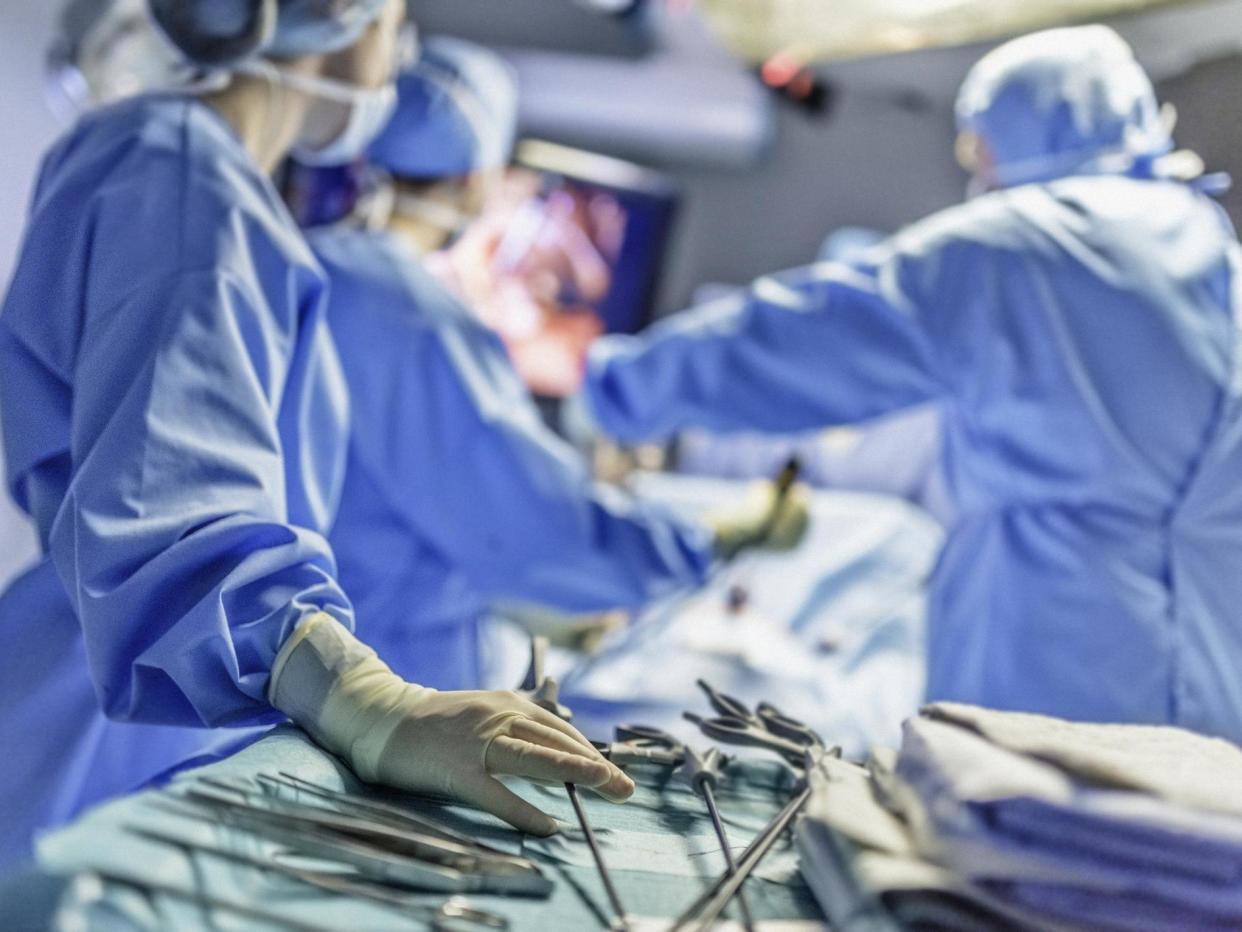Surgery patients with deadly sepsis are not getting antibiotics fast enough, NHS audit finds

More than 80 per cent of patients who have signs of a deadly sepsis infection before high-risk surgery are not getting antibiotics fast enough, a major NHS report has warned.
Sepsis kills an estimated 44,000 people in England every year and rapid access to antibiotics within the first hour after diagnosis is vital to halt the infection.
But a review of performance across 179 NHS hospitals has found a majority of patients undergoing emergency bowel surgery are not getting medication early enough.
A leak of the bowel can cause sepsis and while antibiotics will help treat the infection, surgery is essential to repair any sepsis-causing leak.
The Royal College of Anaesthetists, which carried out the study for the NHS, said although the number of patients getting surgery in time had improved over the last five years, the numbers receiving antibiotics within an hour had not.
“Only 19 per cent of patients with suspected sepsis received antibiotics in the first hour. This has not improved over five years, and is a key area of improvement that must be addressed urgently,” the experts said in the report, which was published on Friday.
In addition, more than a quarter of patients with the most urgent need for surgery were not getting to operating theatres in time. Delays in getting surgery mean patients are more likely to die within 30 days.
There have been widespread national efforts to raise awareness of sepsis and improve its diagnosis and treatment in hospitals. However, leading clinicians have criticised the campaign for causing “sepsis hysteria”.
The National Emergency Laparotomy Audit also highlighted concerns about out of hours care, with 83 per cent of patients seen during the day being examined by consultant surgeons and anaesthetists before surgery, compared with 70 per cent outside of the working day.
Around 24,000 patients need emergency bowel surgery every year and improvements in care have meant overall mortality rates have dropped from 12 per cent in 2013 to just under 10 per cent in 2018, meaning an extra 700 lives have been saved.
But the experts warned the improvements that were within the gift of individual clinicians had “plateaued and it is likely that wider system and organisational change is now required to see further improvement”.
The time patients spend in hospital has also fallen from 19 days in 2013 to 16 days in 2018, helping to save the NHS £34m a year.
Data from the audit found significant variation exists between hospitals and even within the same hospital.
Professor Ravi Mahajan, president of the RCOA, said: “The reduction in 30-day mortality rates and length of hospital stay show that clinicians are learning from data and implementing changes locally, achieving sustained improvements in results.
“The recommendations in the report need to be shared across the NHS with hospitals and trusts taking on board the need to focus on consistency of care, integration and cultural development. We must see organisational change before further improvements can be realised.”
Russell Prestwich, an emergency laparotomy patient, added: “The survival rates are still scary even though they have improved over time. We need to have better standards of consistent care across the UK and the medical profession needs to learn from where there is good practice already.”
Read more
New DNA testing on NHS will help hundreds of critically ill children
Supply problems for life-saving IV feed to continue, warn NHS bosses

 Yahoo News
Yahoo News 
